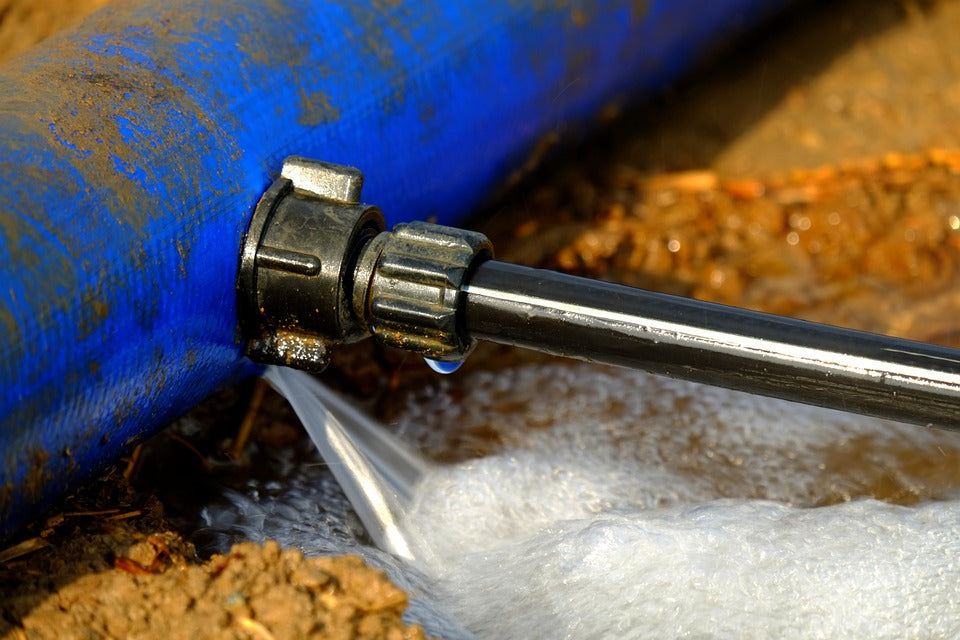
Do we Really Need to Disinfect Drinking Water?
By Dan DeBaunShare
Some countries in Western Europe hold a different view to the US when it comes to treating drinking water with residual disinfectants to render it safe to drink. But which of these two perspectives is right? An article recently published in Science compares these two different approaches and tries to answer this question.
In order to eliminate microbes such as E. Coli and other bacterial contaminants in drinking water, countries such as the US, UK and others require drinking water to be treated with a residual chemical disinfectant such as chlorine. However, these disinfectants typically result in the formation of byproducts that are corrosive, have an unpleasant taste and smell, and can be carcinogenic.
Furthermore, there is very little evidence to prove that treating drinking water with residual disinfectants actually prevents outbreaks of water-borne diseases. A comparative analysis of recent water-borne disease outbreak data from the United States and the United Kingdom compared to the Netherlands shows that even though it doesn't use residual disinfectants to treat drinking water, the risk of water-borne disease is lowest in the Netherlands.
The authors point out that the Netherlands has been proactive in keeping its water infrastructure up to date, replacing more than 50% of its water piping in recent years. By comparison, water infrastructure in both the UK and the US is old and outdated, consisting of aging, leaking pipes with reduced water pressure, which increases the risk of contamination by bacterial pathogens. With the rate of leakage in the Netherlands estimated at a mere 6%, compared to 16% in the US and 25% in the UK, the lower leakage rates in the Netherlands may account for the lowered risk of bacterial contamination.
While the authors suggest that more data is needed to provide conclusive evidence, the European approach suggests that it is possible to supply safe drinking water without disinfecting with a residual chemical treatment. Obviously this is assuming the infrastructure that delivers the water is well maintained, with minimal leakage, thus reducing access points for bacterial drinking water contaminants to enter the system. That may be a tough nut to crack in the US and UK, but may worth the attempt in progressive minded towns and cities with recent infrastructure builds.
A segment of Science's weekly podcast with Fernando Rosario-Ortiz, related to this research can be viewed at: https://traffic.libsyn.com/sciencemag/SciencePodcast_160226.mp3
Journal Reference:
Fernando Rosario-Ortiz et al. How do you like your tap water? Science. 26 February 2016. VOL 351 ISSUE 6276 (pp 912-914).
-
Regular price $234.00 USDRegular priceUnit price / per
-
Regular price $327.00 USDRegular priceUnit price / per
-
Regular price From $367.00 USDRegular priceUnit price / per
-
Regular price From $408.00 USDRegular priceUnit price / per
-
Regular price From $451.00 USDRegular priceUnit price / per
-
Regular price From $478.00 USDRegular priceUnit price / per
-
Regular price $332.50 USDRegular priceUnit price / per
$350.00 USDSale price $332.50 USDSale

Dan DeBaun
Dan DeBaun is the owner and operator of Big Berkey Water Filters. Prior to Berkey, Dan was an asset manager for a major telecommunications company. He graduated from Rutgers with an undergraduate degree in industrial engineering, followed by an MBA in finance from Rutgers as well. Dan enjoys biohacking, exercising, meditation, beach life, and spending time with family and friends.
~ The Owner of Big Berkey Water Filters

















Hello, just wanted to knwo if we boil water would it take care of most things in it?...and could we know what is in your cartridges to filter the water through berkey's system?...thanks
Hi Angie -
Boiling would only address bacteria and viruses in the water. It does not address heavy metals and chemicals. For more information on the black berkeys ingredients, please visit our FAQ page.
Thanks
Dan
How can we come to know whether water supply contains virus and bacteria harmful for heath.
Hi Sam -
You would need to have your water tested for this.
Thanks
Dan
So what system do they use...the article does not say...Im not understanding past the care of their infrastructure, which of course makes sense and seem logical but is there water just directly from the source to the tap then?
Hi Terri -
The water would go through a filtration process at the water plant, but no chemical treatment additives are added for it's passage through the distribution system.
Thanks
Dan